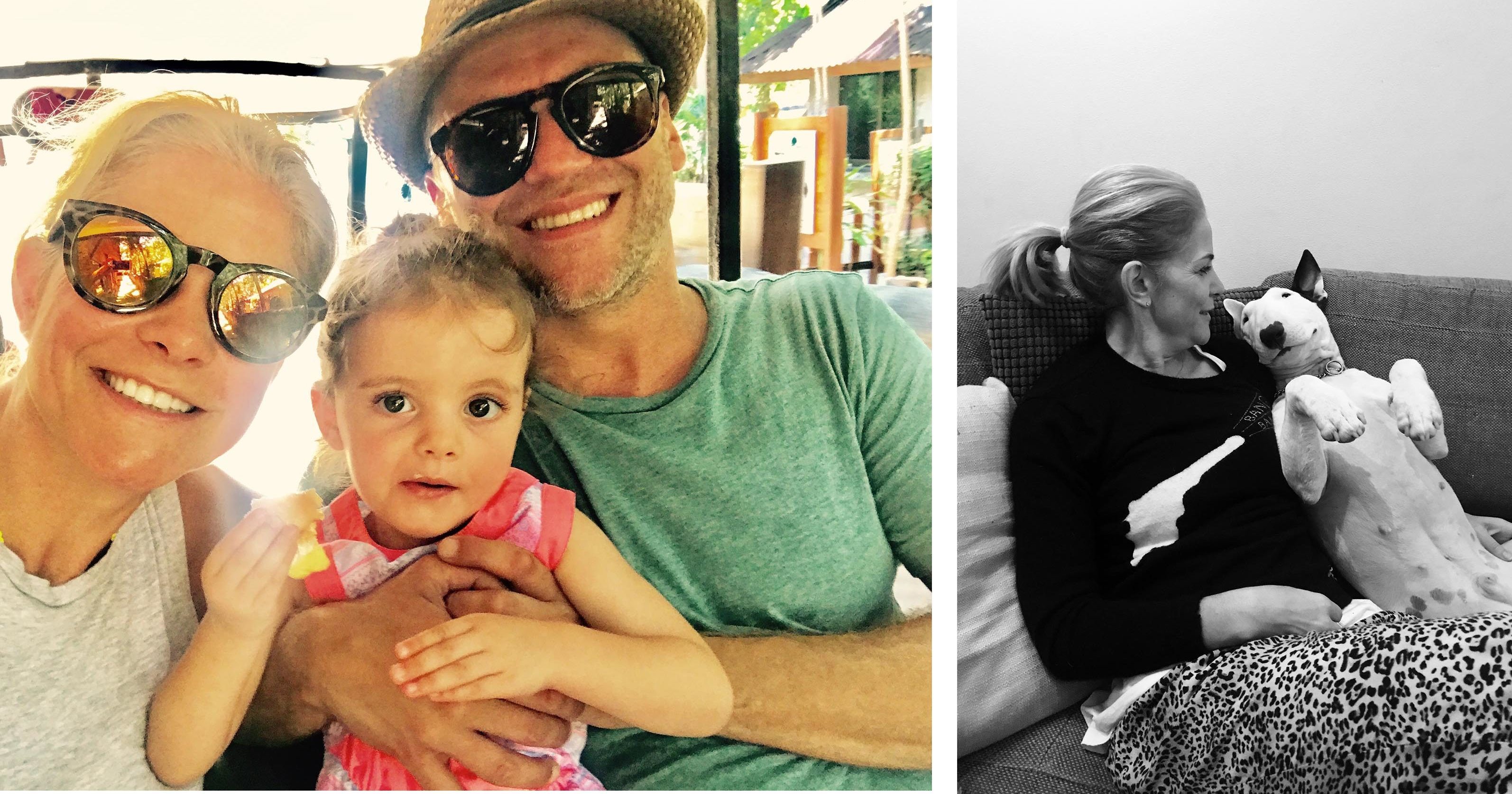Prior to setting up my own business, I worked in an environment notorious for its lack of flexibility: the advertising agency. While not all agencies are the same, it’s fairly safe to say the rumours are mostly true – this is an industry that doesn’t exactly encourage a healthy work/life balance. I spent my twenties in a state of constant insecurity and dread; always terrified that if I wasn’t the last to leave each night, I’d be out of a job. We basically all felt this way. We didn’t even question it. Hey, we’d seen the Devil Wears Prada; we knew our situation wasn’t exactly unique.
When I finally decided to go off and do my own thing, the main reason wasn’t because I was being ignored, oppressed as a woman, or sidelined for a promotion – it was purely because I wanted a life! And rather than being judged by the hours spent at my desk, I wanted to be valued for the work I actually produced. I suspected that I was actually making my employer a fair bit of money – but the faster, more productive I was, the more I was asked to do.
At first, my ‘writing consultancy’ Words By Nuance was just an excuse to work from home, and an attempt to get fairly remunerated for the value I was delivering clients (not the weekends and nights I sacrificed in a fruitless attempt to appease my boss). I had modest expectations. I figured if I could make remotely the same wage I did in an agency, I’d be sweet. After all, I’d be working from home!! Unheard of in advertising, and many other industries too. I crossed my fingers and got cracking.
The weird thing was, flexibility made things easier.
Gone were the days of dragging myself out of bed, schlepping into work, worrying about politics, and trying to get a few minutes peace in lunch hour. Now, I just woke up, sat down, and did the work. I did it whenever and wherever I wanted. I didn’t need to worry about being monitored. I was accountable to my clients and that was quite enough to keep me motivated!
As long as I communicated clearly and was super organised, no one turned a hair. Clients were happy their work was being done well, and delivered on time. They didn’t care if I worked random, weird hours or rewarded myself with the occasional early-mark. They didn’t even care when I spent a month-long stint working from a polo ranch in Argentina.
The work kept rolling in. And before I knew it, I had a thriving business, more work than I knew what to do with, and an amazing team working alongside me.
And while plenty has changed, our commitment to flexibility isn’t one of them. Now, my growing team ALL work flexibly in some way, shape or form. It’s not a concept we’ve had to retrofit; it’s simply how we do things. How we’ve always done things!
It’s not just little teams like ours who are doing it, either.
One of my longest standing clients is Mirvac, a major Australian property company. The sector they work in is not known for its flexibility; especially when it comes to teams on construction sites (you can’t exactly pop off early when you’re building a skyscraper on a deadline). But in spite of this, I’ve been pleased to see Mirvac seize the opportunity to encourage flexible working by introducing a company-wide initiative called My Simple Thing.
As the name suggests, this is a simple concept. It involves each person at Mirvac nominating one simple thing they can do to achieve better work/life balance – and to work with their team to make it a reality. Some come in late or work from home once a week, so they can spend quality time with their family. Some take time out to play sport, or get a massage. Some train for ocean marathon swims (psychopaths). The beauty is, your ‘Simple Thing’ can be anything you like. In the words of Susan Lloyd-Hurwitz “It’s not up to us to tell people what’s best for them. Different things work for different people. We don’t judge.”
It’s been refreshing to see the convo move on from the ‘mum’ thing too.
For so long, really the only valid reason to work flexibly was because you were a woman who had kids (and even then, there was a serious guilt factor involved in leaving the office at 4pm, even when you’d been in since 6). For some reason dads didn’t get the same leeway. And god forbid anyone have any OTHER reason to be somewhere else mid-week!
But parents aren’t the only ones to appreciate flexibility, so does everyone else, regardless of their age, stage or situation! Life by nature isn’t rigid; stuff happens to all of us that we can’t anticipate. Kids break their arms, people move house, relationships begin and end, amazing travel opportunities pop up, weddings and funerals happen, parents get old. We need to roll with the punches. And you can’t do that when you’re stuck in an 8am-6pm straitjacket.
So how can we all make flexibility a reality?
You know how I said flexibility made things easier for me? Well just to clarify, I did not mean to suggest that it was an inherently easy thing to achieve. Even when I was just one person, there was a lot to be learned in the process. Now, a few years on, I know that when it comes to flexible working, there are definitely a few musts.
- Communicate. If you’re working remotely or irregular hours, you absolutely have to keep your team in the loop. It’s not for surveillance reasons; it’s just so everyone’s expectations are managed and there are no surprises. If you’re going to be offline or AWOL for a period, it really helps to let your team know.
- Have a game plan. If you set out what needs to be achieved by when (and any milestones that need to be met along the way) you can manage expectations and keep everyone on the same page. The more notice you can give about when you may need personal time, the easier it will be to accommodate.
- Choose your ‘workspace’ wisely. Working at home may seem appealing but if your internet is patchy, there are screaming kids underfoot, or there’s construction happening next door, don’t even try! Wherever you choose to work, it needs to enable you to work productively and professionally.
- Make time together count. One hazard of flexible working is that it’s harder to get the team together in person. For this reason, it’s really important to allocate time each week to catch up face-to-face. Even just for a coffee! This kind of quality time is what keeps your culture intact.
Now a little inspo…
To finish, I thought I’d give you a little insight into how the Nuance team makes our working hours work for us. Hopefully it sparks some ideas within your own team, and reminds you of all the things you have that matter apart from that daily grind. Remember, life’s for living!
My simple thing
“Often, I’ll be in the office 7am to 2pm, avoiding peak hour and giving me a chance to ride my horse in the afternoons. I also frequently take a day or two off midweek to visit my Dad who lives in the country, and is in his 80s. HI DAD, LOVE YOU (you better have bothered to read this far).”
Alex’s simple thing
“As well as working at Nuance, I also work with my partner to run our music festival, Return to Rio, which is held towards the end of each year. Working at Nuance means I can take the time I need to give my other job extra attention in November when things ramp up, instead of feeling totally overwhelmed trying to do both.”
Emma R’s simple thing
“Work flexibility for me means being able to be a relaxed Mum, versus a stressed-out one who’s always rushing into day care at 1 minute to 6pm. I leave at 3pm every day, giving me more quality time with my amazing daughter.”
Poppy’s simple thing
“As well as working at Nuance, I also work for a fashion label and in a bar (variety is the spice of life!). It’s amazing to have the balance of these different jobs and also the option to take time off to travel, which I love!”
How about everyone else out there? How are you flexing your work to make life better? And if not, what’s stopping you?




